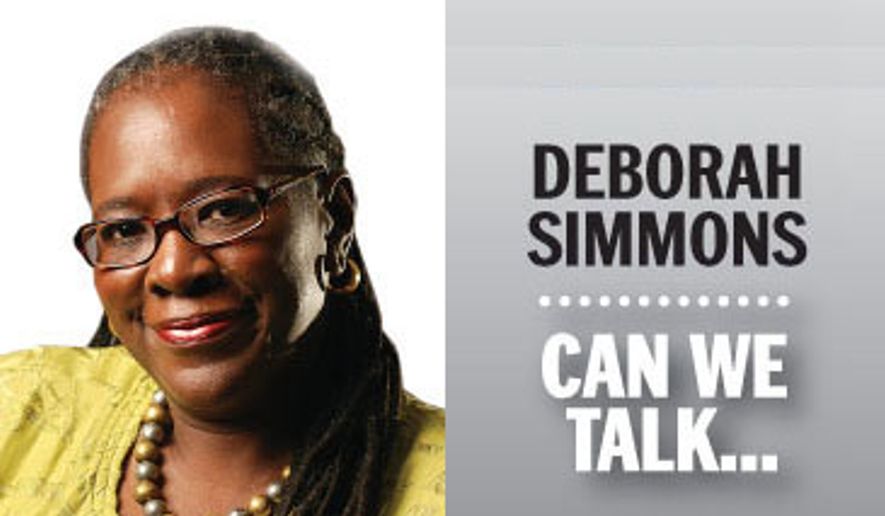ANALYSIS/OPINION:
So, Chris Christie hasn’t given much thought to D.C. statehood.
How interesting, considering the Republican and presidential candidate represents the very first state to ratify the congressional D.C. Voting Rights Amendment on Sept. 11, 1978.
Fifteen other states followed New Jersey’s affirmative ratification efforts, which, by 1984, when the legislation had expired, had fallen far short of the necessary two-thirds state approval. The voters spoke and spoke quite clearly.
But give Mr. Christie some credit. He was still in high school in 1978 and not yet old enough to vote. Now, he wants to be president of the United States, so he cannot afford to be ignorant or disinterested in certain issues.
Statehood plopped onto Mr. Christie’s radar screen on Monday while he was at “Problem Solver,” a nonpartisan forum in New Hampshire. Asked his position, Mr. Christie said he hadn’t given D.C. statehood “enough thought to give you a really thoughtful answer.” It’s an answer we should appreciate.
SEE ALSO: Chris Christie: Granting D.C. statehood won’t ‘help’ Congress run any better
He also said: “But I will give you my initial gut reaction. My initial gut reaction is I don’t think adding another person to Congress is going to help. I just don’t think fundamentally it will help or make an enormous difference.”
Still, Mr. Christie expects, at least in this instance, to either hold himself accountable to a position or glean his position from the Founding Fathers.
“We may [have] the only capital who was created just to be a seat of government,” he said, according to MSNBC’s Benjy Sarlin.
Mr. Christie promises to get back to the issue in a week or so.
And that’s OK.
What shouldn’t be OK, however, is that the District’s elected “shadow” leadership didn’t flood email boxes, the Twitter-verse, Facebook pages and their own websites with reaction and updates on Mr. Christie’s comments.
SEE ALSO: National Museum of Women in the Arts launches ‘Fresh Talk’ forums
Paul Strauss claims to be the “U.S. senator” from the District. The most happening thing on his website is a 2014 event.
Perhaps statehood is old news.
The website for Franklin Garcia is a bit more up to date — unfortunately, it explains why D.C. statehood is blue-state fave.
Mr. Garcia’s site lists Democrat this and Democrat that. Democrats with Latinos. Democrats with Cubans. Democrats with Democrats watching the Tuesday night Democratic debate.
And Democrats with Democrat Eleanor Holmes Norton — she, the only legitimate D.C. member of the House of Representatives. She who cannot vote on the House floor. She who fights for D.C. but also cannot get out of the “shadows.”
What is the problem?
President Obama said of statehood for D.C.: “I’m for it.”
Donald Trump leans in favor.
Hillary Rodham Clinton supports it, according to Mrs. Norton: “I have always been with you, Eleanor. Of course I support D.C. statehood.” (Again, according to Mrs. Norton.)
Bernie Sanders is onboard.
Who it doesn’t have the support of is the American voters and Congress.
The U.S. Constitution explains how states, well, become states, and the D.C. Voting Rights Amendment specifically addressed key points:
1) “For purposes of representation in the Congress, election of the President and Vice President, and Article V of this [U.S.] Constitution, the District constituting the seat of government of the United States shall be treated as though it were a State.
2) “The exercise of the rights and powers conferred under this article shall be by the people of the District constituting the seat of government, and as shall be provided by the Congress.
3) “The twenty-third article of amendment to the Constitution of the United States is hereby repealed.
4) “This article shall be inoperative, unless it shall have been ratified as an amendment to the Constitution by the legislatures of three-fourths of the several States within seven years from the date of its submission.
The measure left Congress on Aug. 22, 1978, and had a seven-year life span, as stipulated by the act. A minimum of 38 state legislature were needed by Aug. 22, 1985. Only 16 signed on, and Delaware gave the last nod on June 28, 1984.
Since then, D.C. residents have wavered between urging support for “shadows” to urging support for statehood. There occasionally were huge, loud efforts for voting rights just for Mrs. Norton, who has held office since 1990 — perhaps explaining why Mrs. Clinton said, “I have always been with you, Eleanor.”
D.C. has a long, tough road to hoe before it becomes a state of these United States, and it’s going to take far more than a new guy or gal in the White House come January 2017.
• Deborah Simmons can be reached at dsimmons@washingtontimes.com.
• Deborah Simmons can be reached at dsimmons@washingtontimes.com.




Please read our comment policy before commenting.